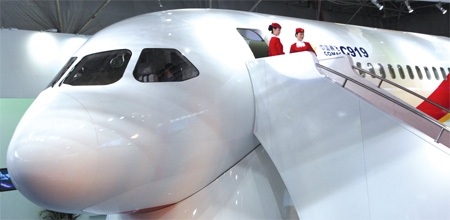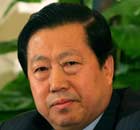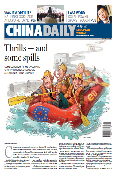It is time to rethink new CBDs
Updated: 2010-07-30 06:37
By Li Xing (China Daily)
On Monday, a worker in Beijing dropped dead while delivering bottled water. The cause of death: heat stroke.
Beijing suffered some 12 days of scorching heat in July, making it the hottest July in a decade.
Throughout the city, people are doing their best to cope with the sizzling heat. Many crowd into shopping malls or supermarkets to enjoy free air conditioning. According to a sales director of Beijing Landao Department Store, the shop's sales after 7 pm have risen by 20 percent.
Others are not so lucky.
The city has yet to calculate the number of people who have succumbed to the heat, but emergency calls have increased by more than 20 percent over the same time last year. The number of people suffering from coronary heart troubles has also doubled.
The hot weather is no friend to people who deliver fast food. Orders are up, and many old apartment buildings are 5 to 6 stories high, with no elevators.
Orders for ice from shops, supermarkets, and farmers' wet markets have swelled; still, live fish are dying in droves on their way from fish farms to market.
What's more alarming is that the average temperature in Beijing's urban center is about 5 to 7 degrees Celsius higher than in the suburbs. The dark orange on the weather map, indicative of extreme heat, is centered on urban areas with a high concentration of skyscrapers.
According to one local newspaper, most of Beijing's six urban districts have become "super urban heat islands". Moreover, for nearly 10 days, the heat and humidity have been accompanied by persistent smog. The days remain gray and depressing.
Clearly, in our drive towards urbanization and modernization, we have not considered the effect of central business districts, or CBDs, in creating urban heat islands.
Nor do we seem to realize that we are caught in a sort of vicious circle. We drive cars into these CBDs. As the heat rises, we use more air conditioning. And as we consume more energy, we add more heat and pollutants to the urban environment.
City officials point out that the municipal government has spent a lot of money trying to mitigate the climate and pollution problems as the urban center of Beijing expands.
Increasing green space in the city is one way to ease the heat effect. This year alone, the municipal bureau in charge of landscape and forestry plans to open 2,450 hectares of green space, hoping to build mini forests in urban centers.
A 30,000 sq m green space now runs through Xicheng' s financial district. Local media call this patch of shrubs the area's "green lung".
Despite these efforts, however, Beijing has less green space and fewer waterways than many major metropolises. We have nothing to compare to New York's Central Park or Berlin's Tiergarten - a large forest in the heart of the city.
Moreover, while Beijing may have an ambitious plan to increase its natural areas, other blueprints continue to give priority to clusters of high rise buildings.
For instance, although Chaoyang district already has the largest area of urban heat island, it plans to build a new business center between the Third and Fourth Ring roads. Fengtai district in southern Beijing also plans to build a new financial district with an iconic building slated to be the tallest in Beijing.
Plans for both the CBD in Chaoyang and the new financial district in Fengtai show clusters of skyscrapers, without a corresponding increase in green space.
I hope this summer's sweltering heat will serve as a wake-up call for decision makers. They need to rethink their building projects, taking into consideration the effect of urban heat islands. If they go ahead with their planned building spree, we are likely to suffer heat waves and smog for many years to come.
E-mail: lixing@chinadaily.com.cn
The author is Assistant Editor in Chief in China Daily
Paper's Digest

Chinese jet takes on Big 2
First large commercial plane set to ride on demand for aircraft as economy grows.
Super-CPU only for domestic eyes
Specials

Chinese jet takes on Big 2
First large commercial plane set to ride on demand for aircraft as economy grows.

Gaining ground
Doing business in china for westerners has come a long way, Peter batey says.

Safeguarding environment a priority
China continues to face mounting pressure to curb environmental degradation, despite progress in reducing pollution over the last five years, the environmental protection minister warned.
